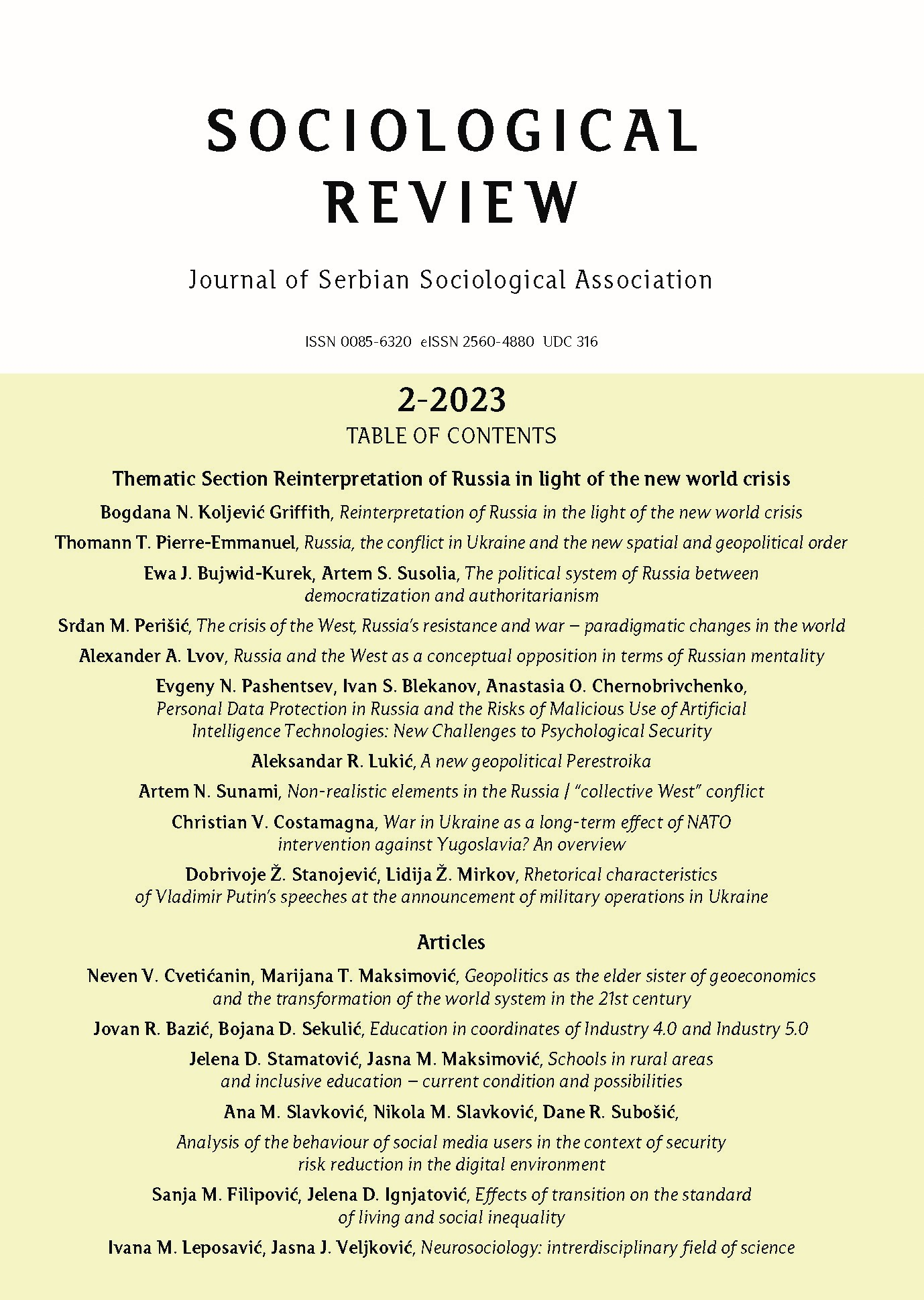The crisis of the West, Russia’s resistance and war – paradigmatic changes in the world
The crisis of the West, Russia’s resistance and war – paradigmatic changes in the world
Author(s): Srđan M. PerišićSubject(s): Politics / Political Sciences, Social Sciences, Sociology, Sociology of Politics, Globalization, Geopolitics
Published by: Српско социолошко друштво
Keywords: Russia; the West; the postmodern; geopolitics; ideology; power; war
Summary/Abstract: The crisis of the West is perceived through the diminishing expansion of the postmodern paradigm to the non-Western parts of the world. The West entered the postmodern at the end of the 20th century, when liberalism remained alone in the political field, while the bipolar international order of the balance of power was destroyed. Liberal postmodernization of the world, initiated by globalization, was adamant. Postmodern liberalism imposed itself to the whole world as the only ideological matrix, whereas the global market and global corporations dictated the relations in the world. The Westphalian system of international relations, as one of the remaining modern categories implying the primacy of the sovereign state, began disappearing. However, the power of the hegemon USA as a military, political and ideological protector of globalization and postmodern, began dwindling in 2008 (a declining power). On the other hand, resistance emerged to the imposition of the postmodern. Russia was the first to adopt anti-liberal and anti-globalization laws (2013), which prompted the West to start a postmodern campaign against Russia. The USA and the West, faced with the increasing resistance, resort to geopolitical strategies from the period of the modern in order to preserve hegemony. Ukraine (as a postmodern creation in the mediation war against Russia) is geopolitically used against Russia). Russia opposes the postmodern West ideologically and geopolitically (by introducing spirituality and tradition in its public sphere) and it is geopolitically engaged in creating multipolarity and the balance of power. In this manner, Russia leaves the West. That creates a different paradigm, not only for Russia, but for the whole world. The paper considers the war a consequence and not a cause of the world crisis (which is also a consequence). The causes lie in the inability of the postmodern (in all its aspects) to impose itself onto the whole world.
Journal: Социолошки преглед
- Issue Year: 57/2023
- Issue No: 2
- Page Range: 424-448
- Page Count: 25
- Language: English, Serbian

